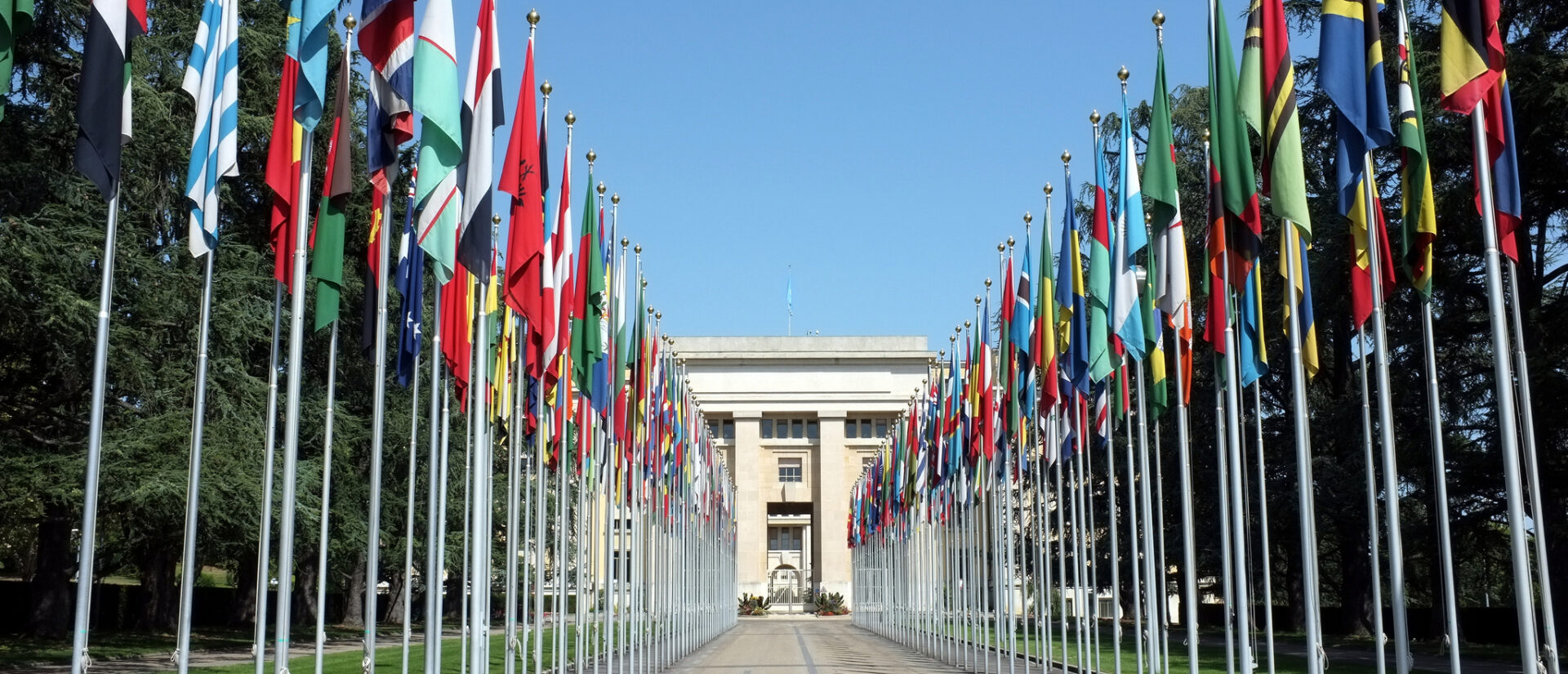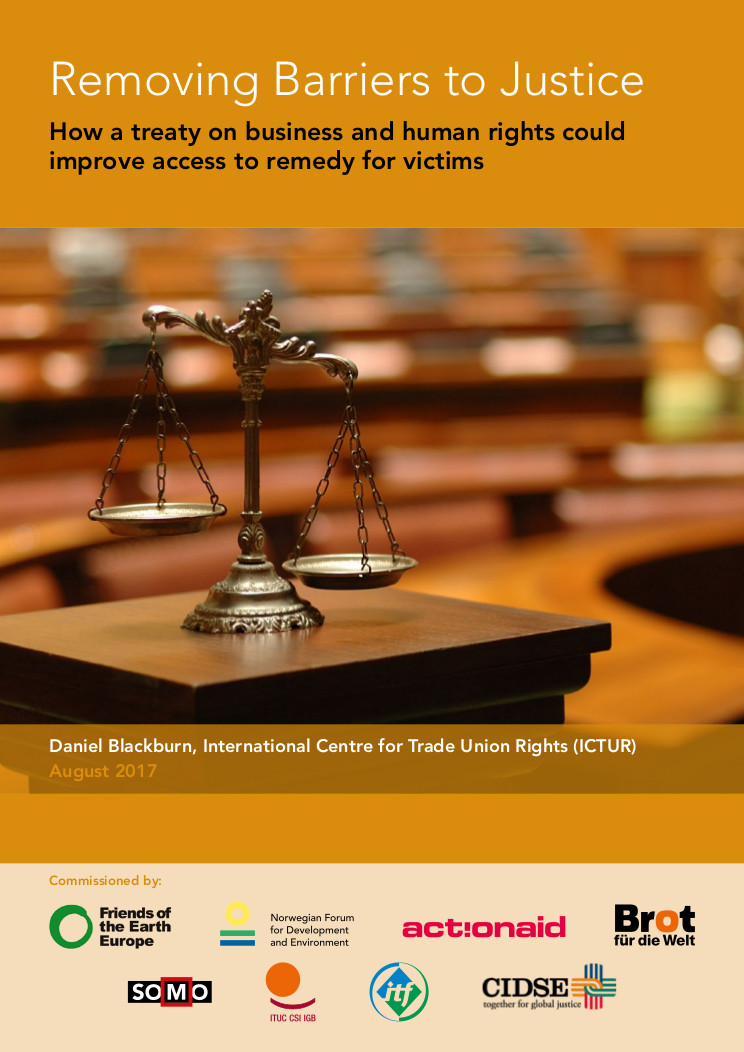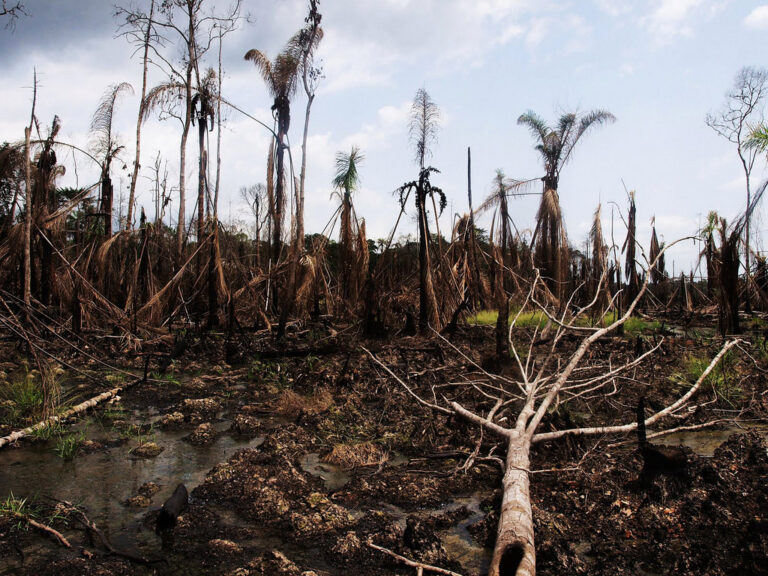
UN treaty process on business and human rights moving into a new phase

The third session of the Open-Ended Intergovernmental Working Group (IGWG) to elaborate an international binding instrument on transnational corporations and other business enterprises with respect to human rights concluded last Friday, 27 October.
A hectic day of parallel informal consultations between the Chair-Rapporteur and the different delegations led at least to one clear outcome: the process will continue in spite of the persistent efforts by certain States to the contrary.

The provisional report of the session was adopted by consensus on Friday, and concludes by requesting the Chair-Rapporteur to hold informal consultations with States and other relevant stakeholders on the way forward. Significantly though, the report does not conclude that there will be a fourth session in 2018, even though this was recommended by the Chair and is a clear expectation of civil society. The fourth session is due to mark the beginning of substantive negotiations on the text of the future treaty. On the other hand, the conclusions also don’t include a call for a new Resolution by the Human Rights Council to renew the mandate of the Working Group. The latter has been pushed for by certain States in what has clearly been perceived as a manoeuvre to attempt to derail the treaty process.
So the outcome could have been better, but it could have been worse as well. On the positive side: the treaty process was kept afloat, among others by the strong push by civil society. If we picture the treaty process to be a boat, one can see it is still floating, even though the engine is in need of extra fuel and the roadmap has fallen into the sea. What is perhaps more important, all passengers stayed on board during last week’s turbulent route. The European Union, which seemed ready to get off on the first day, citing procedural concerns, decided to remain.
Furthermore, the Treaty process has demonstrated the crucial role that civil society can play in high-level decision-making. Hundreds of representatives of civil society organisations, trade unions and affected communities coming from every corner of the globe flooded Room XX at Palais de Nations (the main room in the Palais) and the Place des Nations in Geneva (the square in front of the UN). This added to tireless campaigning and lobby work over the past year aimed at securing the EU’s and other States’ constructive engagement in the discussions. Civil society and human rights defenders’ pressure was noted, with their presence referred to by proponents and critics of the treaty – including the European Union – as the ‘eyes of the world’ in this process. The support by the recently created interparliamentary network(opens in new window) for a binding treaty has also made an impact in this regard. Influencing the process from the extreme opposite of the spectrum, the business community did not miss a chance to aim at the hull of the boat, including by arguing that promoting human rights can disincentivise investment.
On the downside: the call for informal consultations on the continuation of the process in the conclusions of the provisional report is not sufficient, and seriously risks delaying the process. A successful fourth session in 2018 would ideally be preceded by a zero draft text, shared well in advance of the session, and a programme of work for 2018 which includes clear milestones and consultations in the run up to the session. This process requires the joint efforts of all the parties in the Working Group, including the Chair, Member States and the EU, and civil society.
The next months are crucial for the success of the process and there are several steps to be taken. Firstly, the adoption of the session report must be affirmed: it was adopted ad referendum last Friday, which means capitals have two weeks to provide further comments to the provisionally agreed text. Subsequently, all states need to roll up their sleeves and develop a position on the Draft Elements shared by the Chair-rapporteur one month ago. Finally, the design of the roadmap to the fourth Session needs to be agreed upon. The EU and its Member States have cited their discontent with the process so far as an argument for not engaging on substance. Now that the Draft Elements have been published, all eyes will be on them to take part in the consultations and develop their position in relation to the Draft Elements, and – once developed – on a zero draft text.
Civil society stands ready to actively contribute to the process and is united in moving forward to a fourth IGWG session in 2018. Victims of human rights abuses by corporations around the world can wait no longer.
Do you need more information?
-

Lydia de Leeuw
Researcher

Related content
-
Removing Barriers to Justice Published on:Daniel Blackburn, International Centre for Trade Union Rights (ICTUR)Posted in category:PublicationDaniel Blackburn, International Centre for Trade Union Rights (ICTUR)

-

-
 CSDDD Datahub reveals law covers fewer than 3,400 EU-based corporate groupsPosted in category:News
CSDDD Datahub reveals law covers fewer than 3,400 EU-based corporate groupsPosted in category:News David Ollivier de LethPublished on:
David Ollivier de LethPublished on:

